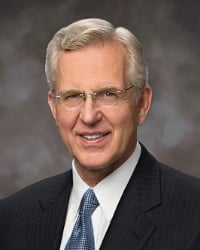
I haven’t met anyone who found the gospel later in life who didn’t wish it could have been earlier.
LDS Quotes on Conversion

I haven’t met anyone who found the gospel later in life who didn’t wish it could have been earlier.
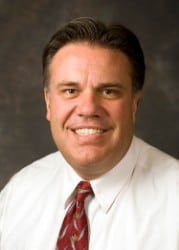
“When we’re tempted to give up, we must remember God is long-suffering, change is a process, and repentance is a pattern in our lives.”
| The Continuous Atonement
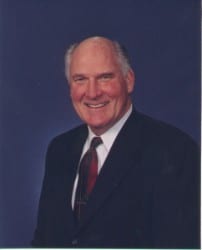
“Our behavior is nothing more than a reflection of the depth of our conversion to Jesus Christ.”
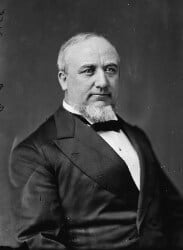
The Saints should not imagine that because they know the truth and the Work of God at the present time, that they will always know these things and therefore be able to stand. If they lose the Holy Spirit through their transgressions, from that moment their knowledge respecting the Work of God ceases to increase and becomes dead; a short time only elapses before such persons deny the faith. They may not deny that the Work was ever true, or that the Elders were ever the servants of God, but they will place a limit and say, ‘Up to such a time the work was true and the Elders were all right, but, after that, they went astray,’ – that very period being the time at which they themselves had committed some act or acts to forfeit the Spirit of God and kill the growth of that knowledge which they had had bestowed upon them. This has been the case in numerous instances in the past. . . . It is plain that it is they who have transgressed, and thereby driven the Spirit of the Lord from them; and at the very time they say the Church of God strayed, they themselves were guilty of transgression.
| “Knowledge, without the Aid of the Spirit of the Lord, Not Sufficient to Save,” Millennial Star, 8 Aug. 1863, pp. 505–6.

“Abide in me” is an understandable and beautiful enough concept in the elegant English of the King James Bible, but “abide” is not a word we use much anymore. So I gained even more appreciation for this admonition from the Lord when I was introduced to the translation of this passage in another language. In Spanish that familiar phrase is rendered “permaneced en mi.” Like the English verb “abide,” permanecer means “to remain, to stay,” but even gringos like me can hear the root cognate there of “permanence.” The sense of this then is “stay—but stay forever.” That is the call of the gospel message to Chileans and everyone else in the world. Come, but come to remain. Come with conviction and endurance. Come permanently, for your sake and the sake of all the generations who must follow you, and we will help each other be strong to the very end.
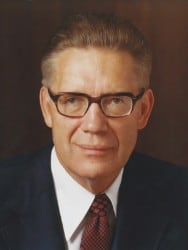
“Being born again is a gradual thing, except in a few isolated instances that are so miraculous they get written up in the scriptures. As far as the generality of the members of the Church are concerned, we are born again by degrees, and we are born again to added light and added knowledge and added desires for righteousness as we keep the commandments.”
| “Jesus Christ and Him Crucified,” 1976 Devotional Speeches of the Year
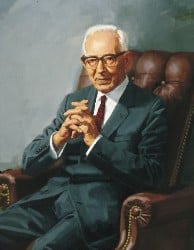
“Show me Latter-day Saints who have to feed upon miracles, signs and visions in order to keep them steadfast in the Church, and I will show you members … who are not in good standing before God, and who are walking in slippery paths. It is not by marvelous manifestations unto us that we shall be established in the truth, but it is by humility and faithful obedience to the commandments and laws of God”
| Conference Report, Apr. 1900, 40
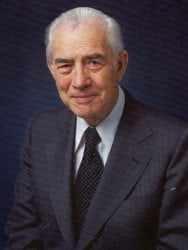
“We can readily see that observance of the Sabbath is an indication of the depth of our conversion. Our observance or nonobservance of the Sabbath is an unerring measure of our attitude toward the Lord personally and toward his suffering in Gethsemane, his death on the cross, and his resurrection from the dead. It is a sign of whether we are Christians in very deed, or whether our conversion is so shallow that commemoration of his atoning sacrifice means little or nothing to us.”
| “The Sabbath Day,” Ensign, May 1975, 49.

“A person may get converted in a moment, miraculously. But that is not the way it happens with most people. With most people, conversion [spiritual rebirth and the accompanying remission of sins] is a process; and it goes step by step, degree by degree, level by level, from a lower state to a higher, from grace to grace, until the time that the individual is wholly turned to the cause of righteousness. Now this means that an individual overcomes one sin today and another sin tomorrow. He perfects his life in one field now, and in another field later on. And the conversion process goes on until it is completed, until we become, literally, as the Book of Mormon says, saints of God instead of natural men.”
| “Be Ye Converted” (address given at the BYU First Stake Quarterly Conference, 11 February 1968), 12.
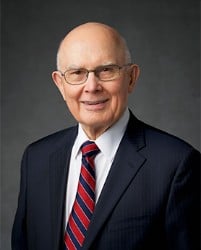
“Our needed conversions are often achieved more readily by suffering and adversity than by comfort and tranquillity. … Father Lehi promised his son Jacob that God would ‘consecrate [his] afflictions for [his] gain’ (2 Nephi 2:2). The Prophet Joseph was promised that ‘thine adversity and thine afflictions shall be but a small moment; and then, if thou endure it well, God shall exalt thee on high’ (D&C 121:7–8). Most of us experience some measure of what the scriptures call ‘the furnace of affliction’ (Isaiah 48:10; 1 Nephi 20:10). Some are submerged in service to a disadvantaged family member. Others suffer the death of a loved one or the loss or postponement of a righteous goal like marriage or childbearing. Still others struggle with personal impairments or with feelings of rejection, inadequacy, or depression. Through the justice and mercy of a loving Father in Heaven, the refinement and sanctification possible through such experiences can help us achieve what God desires us to become.”
| "The Challenge to Become," Ensign, Nov. 2000, 32